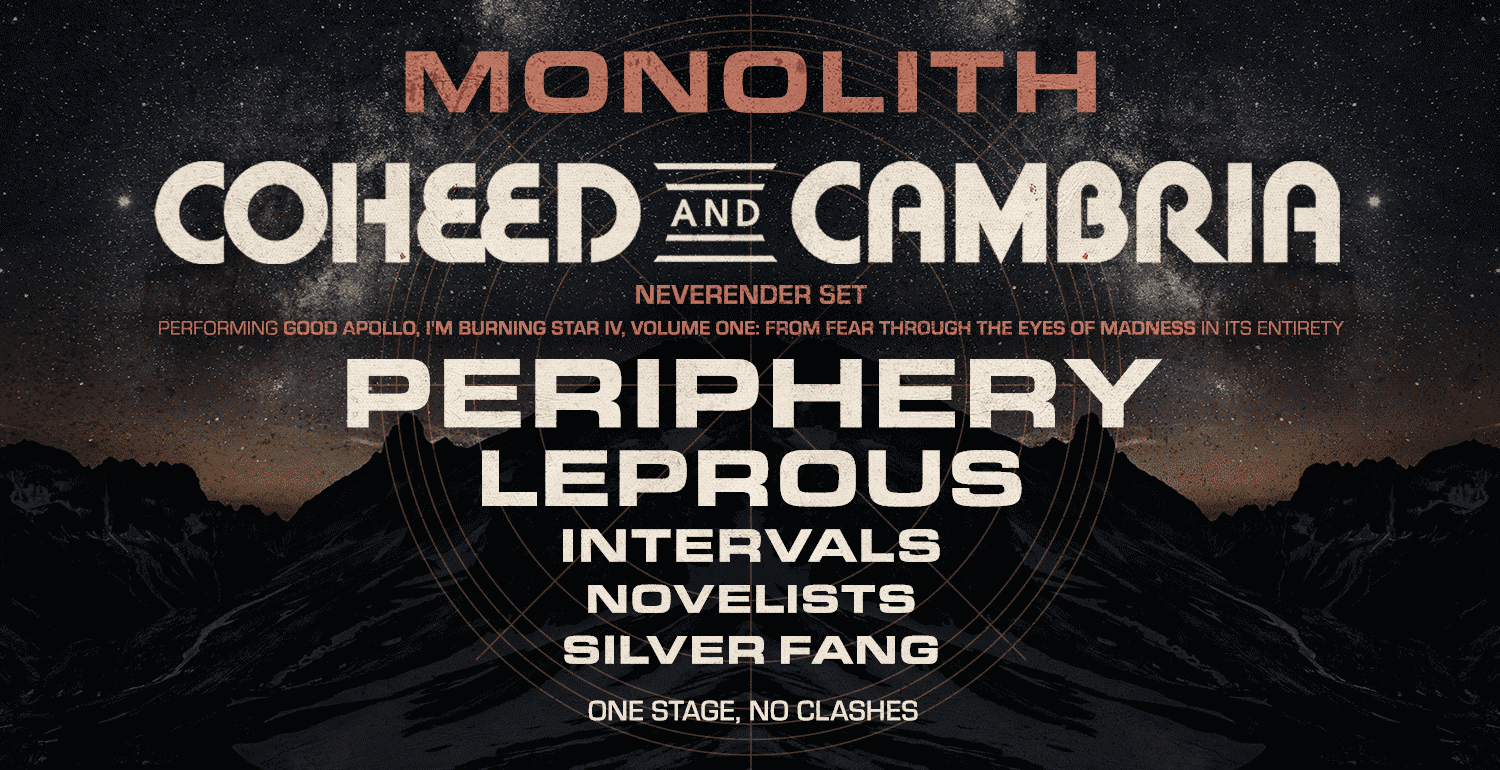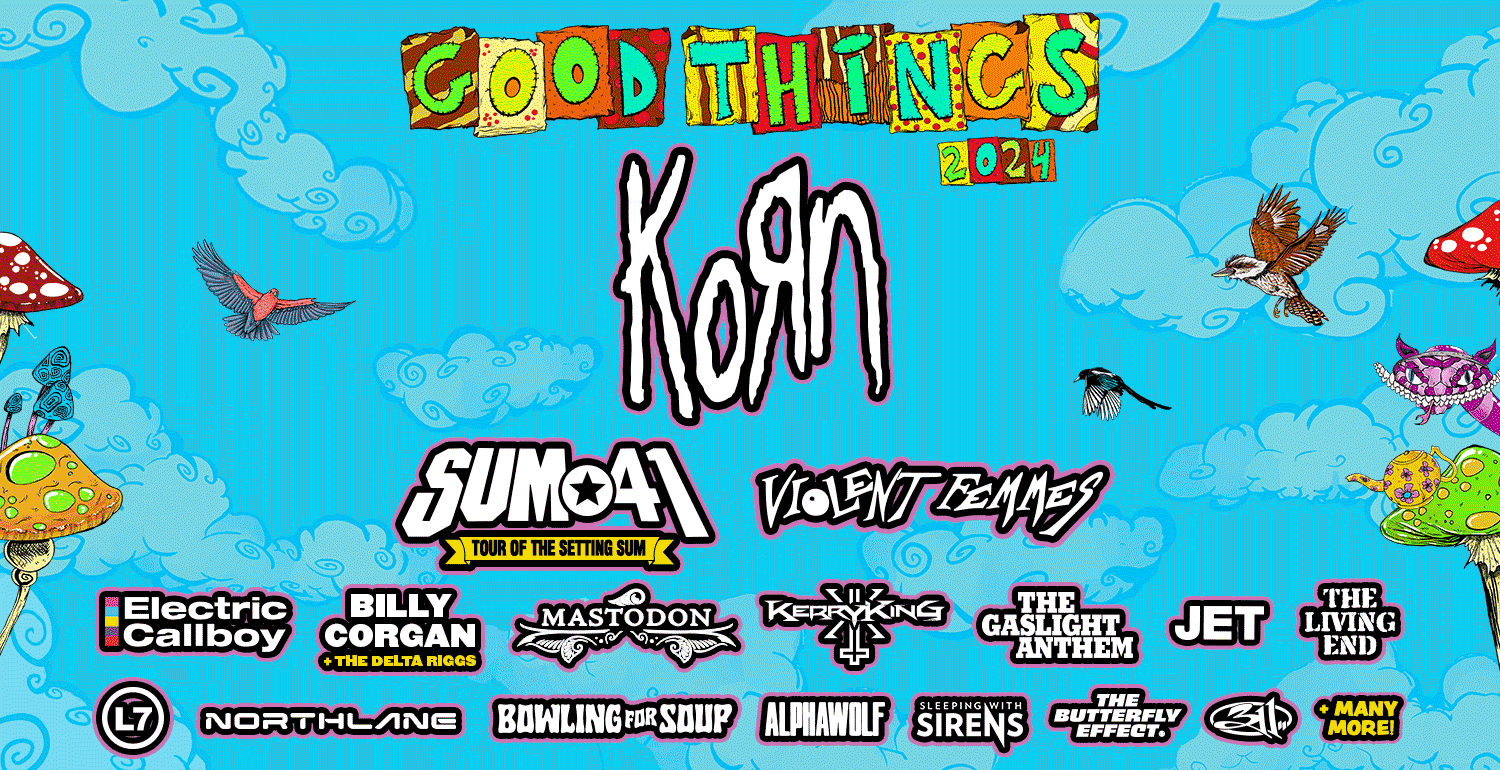By Cameron Cooper
Although you might not recognise the name, you’ll certainly recognise Saint Asonia’s personnel: the band is spearheaded by Staind co-founder Mike Mushok and former Three Days Grace frontman Adam Gontier, rounded off by Stuck Mojo’s Corey Lowery and ex-Finger Eleven drummer Rich Beddoe. Love them or hate them, you’ve likely heard a song or two from the guys over the years. So how did this post-grunge supergroup get together?
With Staind on hiatus, Mushok has spent the last few years getting his teeth stuck into other projects. The baritone-axe slinger made his love of metal clear in 2013 when he teamed up with Jason Newsted for Heavy Metal Music, leading to the formation of Saint Asonia.
“When I found out Adam left Three Days Grace I was on tour with Newsted,” Musok explains. “We had our last show in Colorado and I asked him ‘Do you want to hang out for a bit?’ We got along really well – writing was super easy.”
Those writing sessions manifested in Gontier’s demo for RCA, with the two songwriters quickly seeing the potential for something more. “He was very receptive to what I had. I came in with a bunch of ideas and we went through them, he picked what he liked and those were the ideas we pursued. Adam also came to the table with a bunch of songs that helped round out the record and make it what it is.”
Despite the speed at which the band and their self-titled debut came about, the album is anything but rushed, carrying with it the tropes one would expect from Mushok and Gontier, but thoughtfully produced enough to showcase the group’s own sound. The album was produced by Johnny K, who has worked with Mushok on the last few Staind albums.
“Johnny is a really hard working guy – he doesn’t bring a lot of people into the studio, he likes to do it himself. He knows his studio inside and out so he can get great sounds, he has great ideas and he keeps things moving. We don’t always use his ideas, but it gets you thinking, so that’s what I enjoy about it.”
The song-writing process itself was more or less completed by the time the band got to the studio, ranging from the heavy, galloping Let Me Live My Life to the chilled out, bongo-boasting Trying To Catch Up With The World.
“I like diversity on records, I’m not afraid to do that, some people say ‘Oh, you’re not heavy’ – I don’t care, if it’s a great song then it’s a great song,” Mushok states. “I mean, why would you not put that on a record? Okay, it doesn’t have heavy guitars, but whatever. We can put great songs on there regardless.”
“I feel very fortunate to have worked with both Aaron and Adam who are two amazing singers and have a great sense of melody. Something Fred Durst told [Staind] when he was working with us on ‘Dysfunction’ was ‘You’ve got a guy who can sing, why doesn’t he just sing?’. Coming from West Massachusetts and playing with hardcore bands and trying to be the heaviest we could be, that made us embrace it rather than avoid it.”
Mushok certainly learnt a lot of lessons during his time in Staind, but acknowledges the music industry is a different beast nowadays.
“Staind‘s career was based on songs getting played on the radio and being able to tour, building a fan base from people hearing your songs and buying your records,” he explains. “Now there aren’t a lot of radio stations that reach people, it’s mainly festivals. Which are great, but you want to be able to go and tour yourself. I think that is becoming a lot harder for new bands because it costs a lot of money to go on tour. Bands are responsible for everyone’s salary and travel, so in that sense it’s harder.”
“When we started and labels were selling records, they were like a bank. You could say ‘Hey, we need tour support’ and they’d say ‘Sure, here’s the cheque’. Labels aren’t really selling records any more, so they aren’t writing those cheques. It makes it more difficult. There is this vicious circle of chasing your tail and not getting ahead.”
Although the position of labels in the industry has changed, Mushok is still championing their importance to fledgling bands.
“I still think labels are viable. If you can sell 500 tickets in your hometown, it is going to show someone you have something. And if you can do it there, why can’t you do it elsewhere? I think somebody needs to recognise that, whether it is a record label or whatever. It takes someone to invest in what you are doing. For new bands, that is really it. You have to play out as much as you can, and have your own style. With social media there are definitely more ways to reach people, but everyone is doing it. I think it was Trent Reznor who said ‘Yeah, everybody has got studios in their bedrooms, but it doesn’t make the music any better.’ There are still only a few people who can make great music. Those people are out there, but it is just a matter of finding them.”
Saint Asonia’s debut is out now via Sony Music Australia.













